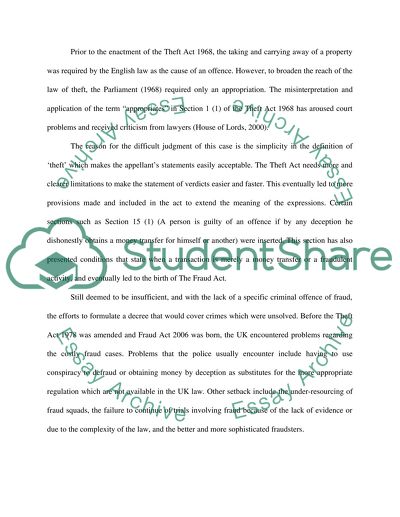Cite this document
(“How Serious is the Problem: Fraud Act 2006 Essay”, n.d.)
How Serious is the Problem: Fraud Act 2006 Essay. Retrieved from https://studentshare.org/law/1507355-fraud-law
How Serious is the Problem: Fraud Act 2006 Essay. Retrieved from https://studentshare.org/law/1507355-fraud-law
(How Serious Is the Problem: Fraud Act 2006 Essay)
How Serious Is the Problem: Fraud Act 2006 Essay. https://studentshare.org/law/1507355-fraud-law.
How Serious Is the Problem: Fraud Act 2006 Essay. https://studentshare.org/law/1507355-fraud-law.
“How Serious Is the Problem: Fraud Act 2006 Essay”, n.d. https://studentshare.org/law/1507355-fraud-law.


